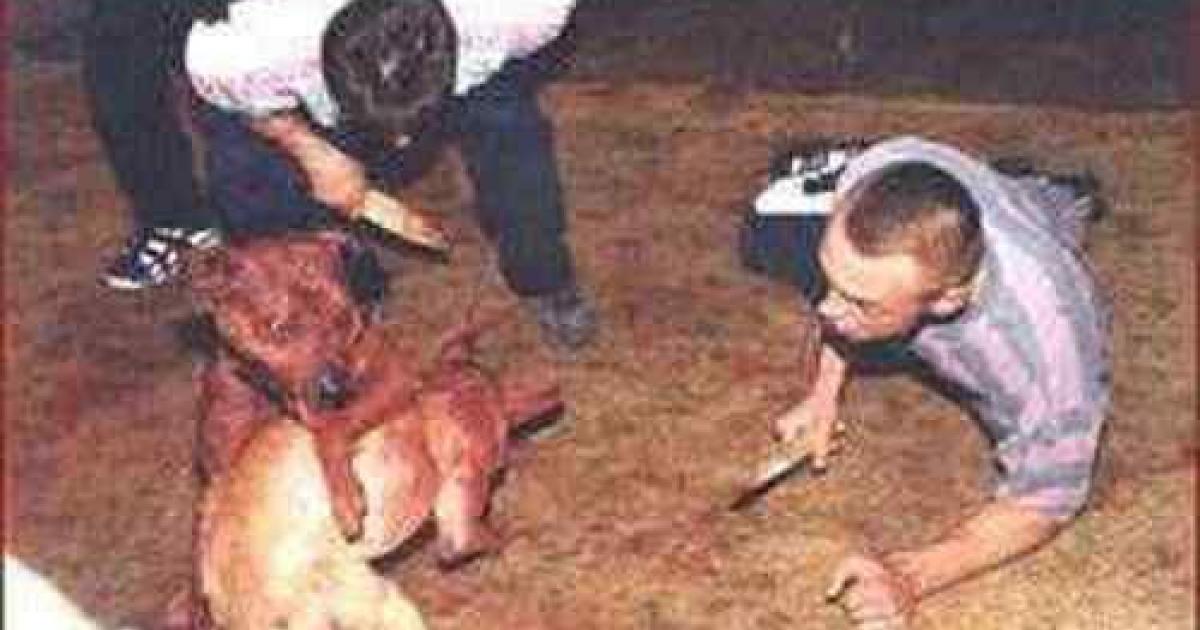Jail to exploitation, abuse, dog fights, protect them from aggressive training and overcrowding
people signed. Let's get to 20,000!

Addressed to: Government of Cuba and 6 more
From small and even before being born these dogs are destined by their owners to fight. Their lives are summed up in strong training and death battles in the clandestine fences. The objective of their masters is to make money in bets, for others it is just fun.
Pitbull fights are the most visible face of animal abuse in Cuba, not only because of the violence shown by the animals during the fight but also because they are badly injured and frequently lose their lives because many of these confrontations only end when one of the two opponents dies.
Adrián Gómez, veterinarian and dog trainer for fights, comments on some of his methods. "I specialize in the care and training of fighting dogs. I am a veterinary graduate from the Agrarian University of Havana, I found fighting dogs a way of life. Training, caring and preparing a dog to fight is an investment that is recovered in betting. I give the dogs very well-calculated doses of steroids and hormones, such as testosterone. In this way, the aggression of the animal increases in combat, as well as all its physical capacities; strength, speed and resistance. Ephedrine also helps optimize the dog's qualities. "
A normal training session may begin by forcing the dog to hang on a car tire with its jaws, for as long as possible. "This greatly increases the strength of the bite."
"Special exercises with weight, run the dog in the sand on the beach for more than 45 minutes, swimming sessions and race for more than 8 kilometers riding on a bicycle, are part of the special exercises for strength training and the resistance. Climbing up and down stairs in a stadium is also necessary for the dog to take a 'bomb' (resistance). One of the final stages consists of throwing the dog to fight with another, but with a muzzle in his mouth to learn to resist the bites of his opponent and learn to dodge, to put the body, "adds Raul Santos, colleague of Adrián
All these methods are used for several months. The special diet based on red meats such as beef or mutton in the initial stage, and fish and chicken in the final stage of training, are part of the "inversion" that Adrián talks about.
When the owners of the dogs consider that these are no longer valid for fights, they end up being abandoned, strangled, or even beheaded.
"The best dog trainers in Cuba have come to the conclusion that the more the dog suffers in his training, the more resistant he becomes, and therefore the better fighter. It is about training the animal better for its own benefit, in this way it will stay longer with life ", says another of the trainers, who did not want to reveal his identity.
Noel Hernández, active captain of the PNR (National Revolutionary Police) in San José de las Lajas, speaks on the subject:
"The PNR works continuously to try to eradicate the problem of dogfighting. It is very difficult because clandestine fences are constantly changing places and they even have people guarding several kilometers with mobile phones that warn if a police operation is approaching. So it is very complicated to fight them, we have arrested several people that we know are dedicated to that but they only get a fine and they are released. I think that if a stronger measure were applied this serious problem would be eradicated once and for all. "
The Protection of Animals of the City (PAC) is an organization that does not have legal recognition, formed by a group of activists. They have managed to collect 8 thousand signatures of the 10 thousand required to present before the commission of constitutional and legal issues of the National Assembly of Popular Power a proposal of law that protects animals against abuse.
According to Sucel Jurado, the main organizer of PAC, the habitual acts of cruelty and abuse that can be seen in the Cuban streets, as well as clandestine fights, are sufficient arguments to demonstrate the urgency of legislating in this matter.
The Association of Animals and Plants in Cuba (Aniplant) has also exposed this serious situation on different occasions. In the 1980s, Aniplant presented a bill on welfare and animal protection that even in 2016 has not received a response from the Cuban government.
SIGN AND SHARE THIS PETITION
The content of the petitions and the opinions expressed here are the sole responsibility of the author.
